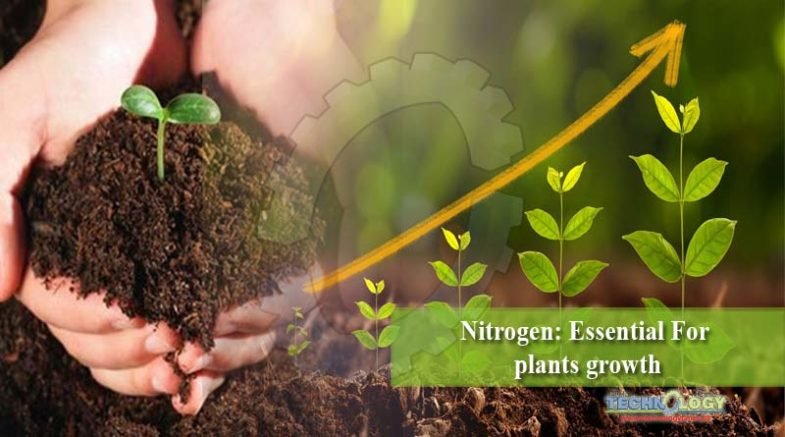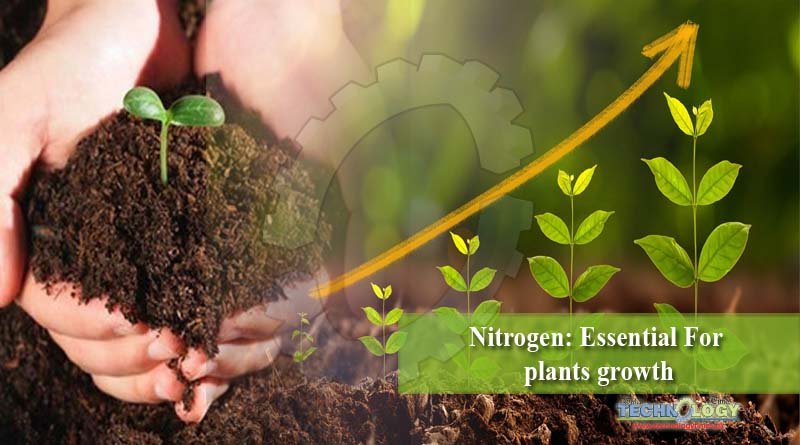Nitrogen is one the most important nutrient which is required for the growth of plants.
 The major source of nitrogen is urea CO(NH2)2. Which contain 46% nitrogen . Another source of nitrogen is DAP which contain 18% nitrogen and 46% phosphorus ( P2O5).Calcium ammonium nitrate CAN also a source of nitrogen which contain 21-27 percentage of nitrogen. Although the main source of nitrogen is our environment (Air) which contain 78% nitrogen, but plant can’t use it due to inertness plant cannot uptake nitrogen as such so first nitrogen converted into the Ammonia and ammonium form for the uptake of nitrogen.
The major source of nitrogen is urea CO(NH2)2. Which contain 46% nitrogen . Another source of nitrogen is DAP which contain 18% nitrogen and 46% phosphorus ( P2O5).Calcium ammonium nitrate CAN also a source of nitrogen which contain 21-27 percentage of nitrogen. Although the main source of nitrogen is our environment (Air) which contain 78% nitrogen, but plant can’t use it due to inertness plant cannot uptake nitrogen as such so first nitrogen converted into the Ammonia and ammonium form for the uptake of nitrogen.
The losses of nitrogen is greater as compared to uptake because Nitrogen is highly volatilizing. The process of volatilization is high at high temperature . The losses of nitrogen or any other fertilizer can be minimizing by 4R (right time, right source, right dose, right method ) method .
The nitrogenous fertilizer volatilize in the form of NH3 at high temperature leaching in the form of nitrate (NO3). Greenhouse gases emission in the form of nitrous oxides (N2O).Nitrogenous fertilizer losses can be minimizing by 4R method (right time, right method, right source, and right dose). Also by slow realizing nitrogen fertilizer now another method by nitrogen fertilizer coated with any other material such as neem and Sulphur. neem and Sulphur coated urea available in market. Nitrogen are most abundant element in the atmosphere about 78 percent present in air. Plant cannot use it because it present in inert form. Through a different microbial transformation, nitrogen is made available to plant use
Steps in nitrogen cycling
- Nitrogen fixation
- Nitrogen assimilation
- Ammonification
- Nitrification
- Denitrification
With the help of bacteria and blue green algae nitrogen gas is converted into inorganic nitrogen compound. In nitrogen fixation ammonium and ammonium nitrate form which assimilate in the tissue of blue green algae and other higher plant. Animal eat them and get their food by praying. In process of ammonification the waste product of animal are decomposed which convert them into NH3 and NH4. With the help of nitrifying bacteria, the process of nitrification is carried out which convert soil ammonia into nitrate NO-3 which plant use and get their energy.
When these plants died and burn the nitrogen release and inter into atmospheric nitrogen and the cycle repeat. Nitrogen is most important in the growth and life cycle of plant. 3-4 percent nitrogen present in the above ground tissue which is higher then any other compound carbon, oxygen etc. Nitrogen play very important role in the chlorophyll.
Chlorophyll component of plant which convert sunlight into sugar and carbon dioxide .It is also a component of amino acid which building block of protein with out protein plant cannot survive.
There are following functions of nitrogen in plants
- It is important in the growth and development of plant because it is component of amino acid.
- It forms and DNA genetic material because it is component of nucleic acid and nucleic acid form DNA genetic inheritance trait and character transfer to certain crops.
- It play important role the process of photosynthesis.
- It gives the lush green color of plant tissue by acting as organelle and form a substance in photosynthesis which give green color to plants.
- Nitrogen enhance the metabolic activities of plant.
Deficiency of nitrogen cause different disorder
- Stunted growth
- Pale yellow coloring of leaves
- Necrosis and apoptosis
- Poor flowering and fruits
Conclusions
Nitrogen is very important component in the growth and development of plant. Deficiency of nitrogen cause several disorders through which the plant cannot survive efficiently and not produce fruit and flower . It is major component of chlorophyll in the process of photosynthesis through which plant produce their food and energy for the carryout of different functions
